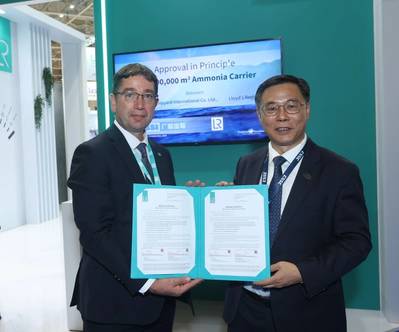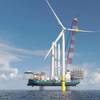GSI Aims to Build World’s Largest Ammonia Carrier
Guangzhou Shipyard International's (GSI) plan to build the world's largest ammonia carrier vessel has taken a step forward.
The Chinese shipbuilder has signed a joint development project (JDP) agreement with classification society Lloyd’s Register (LR) for the design of very large ammonia carrier (VLAC) with a carrying capacity of 100,000 cubic meters (cbm)—larger than a series of 93,000-cbm VLACs currently being built at Hanwha Ocean's Geoje shipyard in South Korea for Greek shipping company Naftomar for delivery from 2026.
The GSI vessel will feature an independent IMO type B tank for the safe storage of ammonia, which is expected to optimize operational efficiency.
The design was assessed according to LR’s Structural Design Assessment and prescriptive analysis and, as part of the JDP, LR provided GSI with its support as an adviser during discussions about ammonia fuel applications and future gas ship developments, building upon this unique vessel design.
Chen Ji, Chairman of GSI, said, “GSI has a good reputation in the market for innovation and a strong R&D ability to develop different kinds of vessels. The 100,000 cbm VLAC design was developed with input from of our long-term partners and an ammonia producer. Thanks to the trust extended by all parties, especially the support from LR, GSI has developed the largest VLAC design in the world.”
Nick Brown, Lloyd’s Register CEO, said, “LR is proud to work with GSI on this historic design for the world’s largest ammonia carrier. As major economies look to co-fire Ammonia in their coal power stations to reduce the CO2 footprint of their national energy mix, shipping will play a key role in distributing clean hydrogen-based commodities such as ammonia, thereby supporting nations to meet their Paris Agreement commitments.











